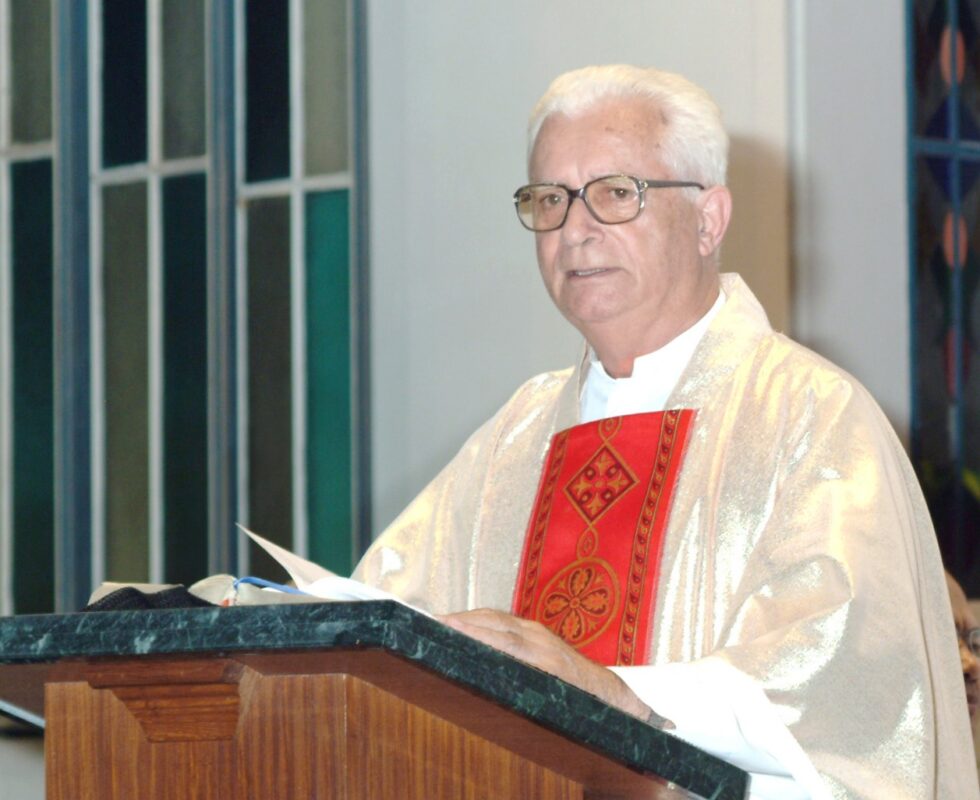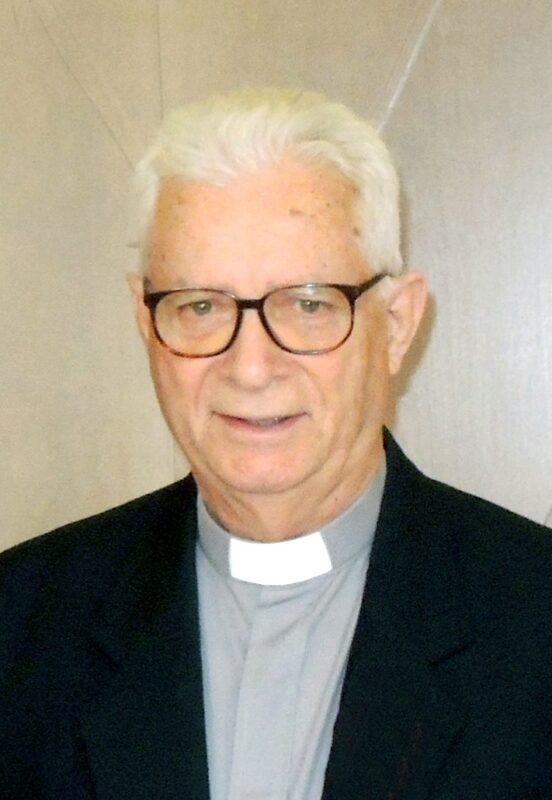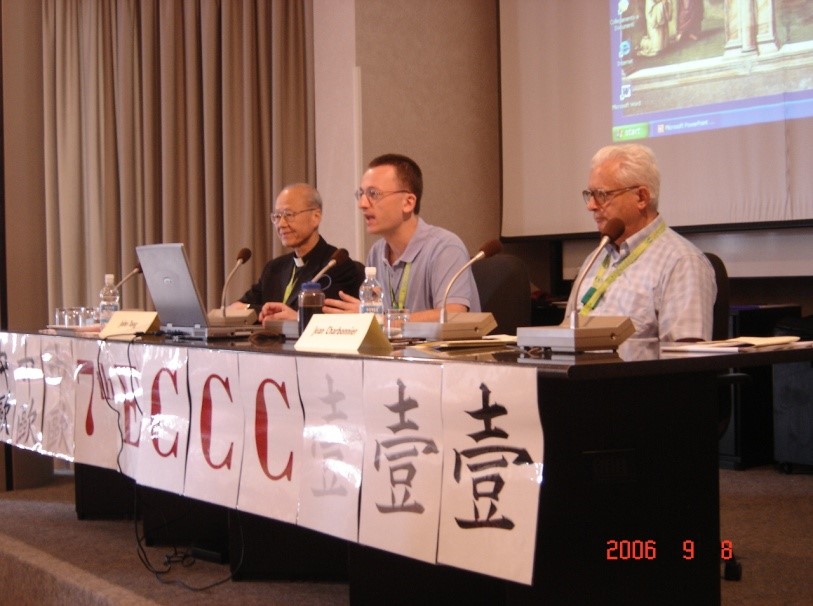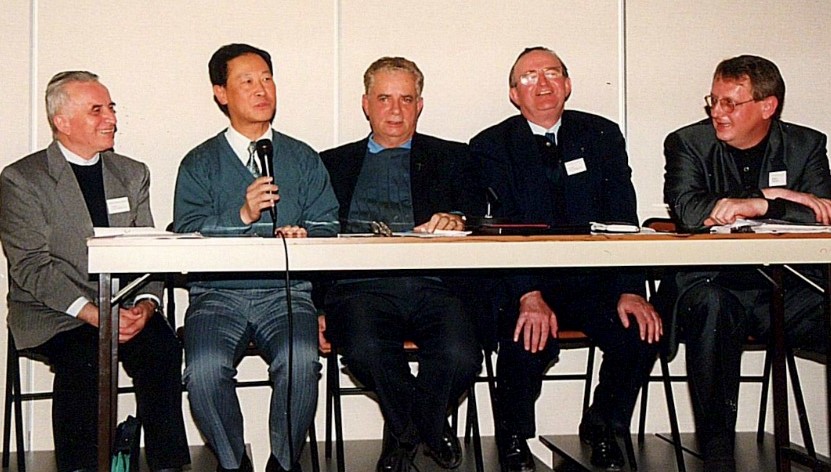
China Bridge (神州橋樑)_2023/Jul
In memory of Jean Charbonnier, missionary and sinologist
Lover of China and expert on the situation of the Church




On the morning of June 27, 2023, Jean Charbonnier (沙百里), died in his room at the MEP (Paris Foreign Missions) retirement home in Lauris, southern France, where he resided since Christmas. He was 91 years old. The many messages of gratitude from many places, especially China, are unanimously recognizing the role that Jean has played in the history of the Church in China during the past decades.
Taking up the torch of our former “Chinese MEP” confreres, Jean has become the “Mr. China” of the MEP, an essential reference for all those who seek to better understand the complex situation of the Church in China. Since the 1970s, he had witnessed the reopening of China and the revival of the Church and a gradual freedom, which has instilled in him an unshakable benevolent optimism, despite the ups and downs of government control over the Church and the internal ecclesial dysfunctions.
Called back to France for a teaching mission in 1970, Jean formed himself and successively defended in June 1972 a thesis in sinology on the philosophy of man in Lu Xun, in June 1973 a second one in theology and religious sciences on cultural identity and modernization in Singapore, and in January 1978 another one on the interpretation of history in contemporary China. Jean got interested in the life of Christians in China, in contemporary times but also throughout history. Aware of the vagaries of history Jean sought to clarify troubled events in the history of the Church in China. All his work led him to publish in French in 1992 his book Christians in China: A.D. 600 to 2000, later translated into English and Chinese. Another essential contribution was the Guide to the Catholic Church in China, with eight editions between 1986 and 2014.
A recognized expert well beyond ecclesial circles, he was often consulted, including by the Holy See, and was decorated with the French Legion of Honour in 2012. He was always available to advise young missionaries as well as Chinese seminarians, priests and nuns studying in France, or even researchers of all origins, artists, journalists, etc. The word “China” was the sesame to open his heart. Jean left us an autobiography of nearly 300 pages, entitled A life in tripod: France – Singapore – China, the three elements that characterize his long life.
France
Second of five children, Jean, born in 1932, grew up in Chatou, close to Paris. Inspired by the faith of his mother and his grandmother, and the example of a young priest, Jean entered minor seminary in 1943. A classmate often talked to him about China. Joined the MEP in 1955, Jean was ordained in 1957 by Bishop Charles-Joseph Lemaire (1900-1995), former bishop in China. Jean’s mission destination was Singapore, a port populated by three-quarters of Chinese. He arrived there at Christmas 1959.
Called back to France in 1970 to teach the aspirants, his collaboration with Léon Trivière (1915-1998), MEP “Mr. China” of the time and his participation in the ecumenical conference of Louvain in 1974 had oriented his work towards the life of the Church in China. He left for Taiwan and Hong Kong and set up a research network. He made his first trip to mainland China in September 1977. From 1979 onwards, he followed Chinese affairs from Singapore.
In 1993, back in France again, taking care of the Chinese seminarians who studied there, Jean henceforth continued his mission for the Church in China from Paris.
Singapore
Young Jean dreamed of China, which was inaccessible to missionaries in the late 1950s. It was in Singapore that he discovered the Chinese people whom he would serve with great joy, especially from 1960 to 1970, the best years of his life. After learning English and Chinese, Jean was sent to the parish of St Bernadette. He engaged in the evangelical formation of lay people. In 1963, Jean founded the Christian Family and Social Movement, which offers family and social training for Catholics. The Archbishop of Singapore appointed Jean spiritual director of a new council to develop the lay apostolate in the spirit of the Second Vatican Council. In 1967, on his first leave, Jean traveled to meet the Chinese in the diaspora.
His first recall to Paris in 1970 and his launch into Chinese studies had made Jean decide at the end of 1978 to return to Singapore, where he could develop exchanges with the Church in China. Back in Singapore, he became resident priest at the cathedral, and was ready to create links with the Church in China.
In 1980, Jean became spiritual director of a group of young Chinese-speaking university students. He proposed them a mission of reconnecting with the Christians of China. Then, the young people formed a team called Zhonglian (China-link). The same year, the MEP Superior General appointed Jean to head the newly created MEP China Service. Visits to China became possible from Singapore. The Zhonglian team produced an illustrated magazine Zhonglian and the bilingual English-Chinese Guide of the churches in China. Jean’s collaboration with them became extremely valuable for the service of the Church in China, even after his transfer to France in 1993. The team members included Emanuel Lim Hwan, who became a Jesuit, and Ambrose Mong, now a diocesan priest of Hong Kong.
China
It is difficult to attribute a particular period for China in Jean’s life, because it was present at all periods without Jean having ever resided in China, despite his 50 trips made there. The accounts of all these trips are irreplaceable witnesses of the life of the Church in China from the end of the 1970s. Jean was always benevolent towards China, and was always welcome in China.
Jean provided articles for different publications, and joined international meetings in Paris, Zurich, Moscow and Hong Kong etc. In 1986, he was invited to a consultation in Rome, and was received by Pope John Paul II. Every two years, Jean brought together the MEP members who worked in connection with China.
From 1994, seminarians, priests and nuns started to arrive in France for their studies. Other European countries facing the same development, Jean organized a European cooperation in connection with Roman Malek, SVD from Germany (1951-2019), Angelo Lazzarotto, PIME from Italy, and Jérôme Heyndrickx, CICM from Belgium – the four pioneers of the resumption of relations with the Church in mainland China, known as “the gang of four”, authoritative in the Church in China studies. Each summer, they provided sessions for the Chinese, which included a time of retreat and formation, and of cultural and ecclesial discoveries.
To conclude in a few words on the personality of this extraordinary sinologist missionary, Jean can be described as curious and humble, always ready to learn, benevolent, seeing the positive in everything and never complaining. His whole ministry was marked by close collaboration with the laity in the spirit of Vatican II, with a great love for the Chinese who repay him well. “Grandfather Sha”, as the Chinese students on Rue du Bac, Paris, affectionately called him, is mourned with affection and gratitude in China and around the world.
BL/by Bruno Lepeu


 ENG
ENG